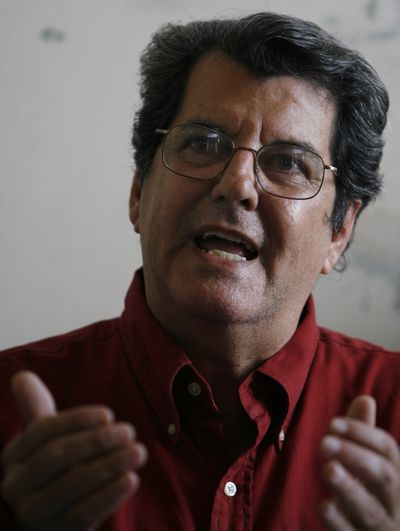Cuban dissident dies in crash

HAVANA – Cuban activist Oswaldo Paya, who spent decades speaking out against the communist government of Fidel and Raul Castro and became one of the most powerful voices of dissent against their half-century rule, died Sunday in a car crash. He was 60.
Paya and a Cuban man described by media as a fellow activist, Harold Cepero Escalante, died in a one-car crash in La Gavina, just outside the eastern city of Bayamo, Cuban authorities said. A Spaniard and a Swede also riding in the car were injured.
Cuba’s International Press Center told the Associated Press that witnesses said the driver of the rental car lost control and struck a tree. Police are investigating.
“This Sunday has been a day of mourning. A terrible tragedy for his family and a loss for the opposition movement,” said Elizardo Sanchez, a human rights advocate and de facto spokesperson for Cuba’s small opposition. “He was a prominent leader. He dedicated years of his life to fighting for democracy.”
Paya is the second leading Cuban dissident to die in the last year, after Laura Pollan, co-founder of the protest group Ladies in White, died of heart failure in October.
Paya, who said he drew strength from his Roman Catholic roots as he pressed for change in his homeland, continued to voice his opposition after Fidel resigned due to illness in early 2008, calling the passing of the presidency to younger brother Raul a disappointment.
“The driving force of society should be the sovereignty of the people, not the Communist Party,” Paya wrote after the new parliament chose Raul Castro as head of state and government. “The people of Cuba want changes that signify liberty, open expression of their civil, political, economic and social rights.”
Paya gained international fame as the top organizer of the Varela Project, a signature-gathering drive asking authorities for a referendum on laws to guarantee civil rights such as freedom of speech and assembly.
The Varela Project was seen as the biggest nonviolent campaign to change the system the elder Castro established after the 1959 Cuban revolution.